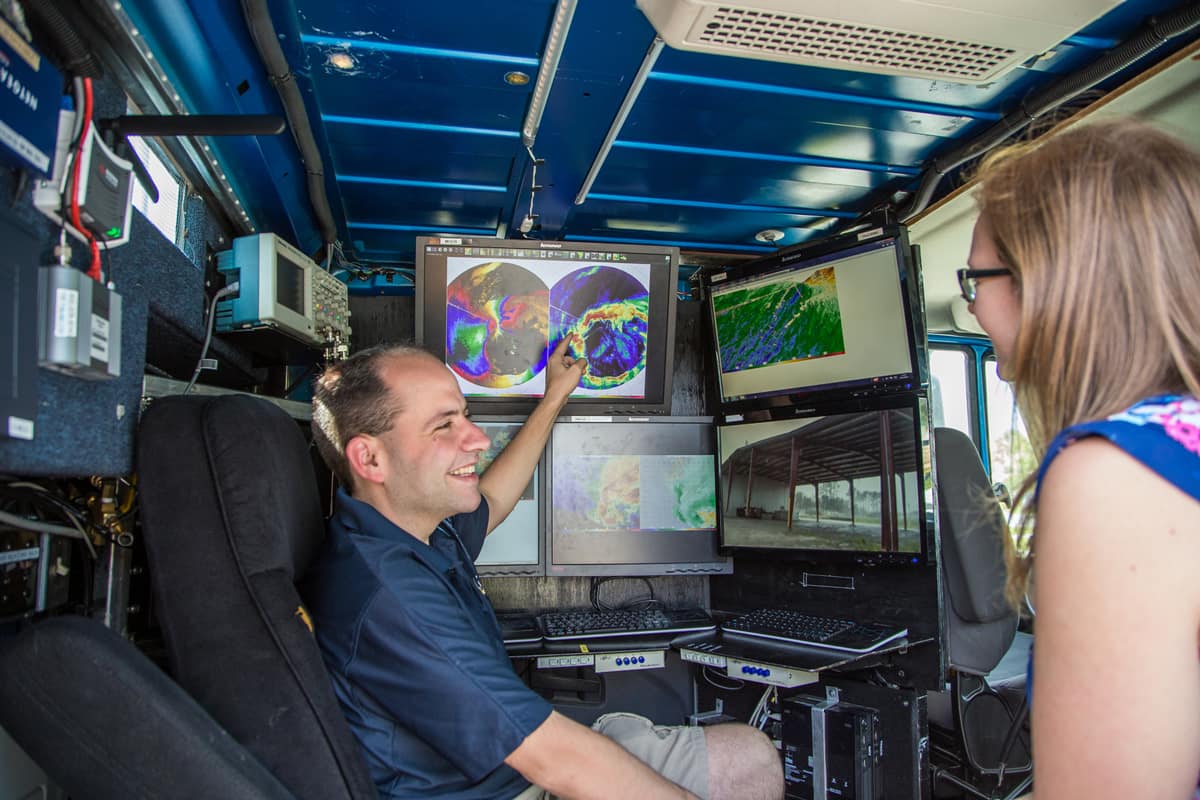Professor Named U.S. Fulbright Scholar, to Study Climate Change in Norway

Visiting Norway — exploring its nature and culture, maybe seeing the aurora borealis — has always been at the tip-top of Dr. Shawn Milrad’s bucket list. Now, as a newly minted U.S. Fulbright Scholar, he’ll not only go, but he’ll stay for five months to conduct research on “heat stress,” or the combination of temperature and humidity, and how those factors have changed in Europe since 1950.
“This is an extremely significant accomplishment in my career,” said Milrad, an associate professor of Meteorology at Embry-Riddle Aeronautical University. “Hard work pays off — and this award provides reinforcement that my recent research focus on heat stress has made a noticeable impact.”
He will begin his research trip in January 2024. During his time in Norway, Milrad will also mentor graduate students at the University of Bergen. Together, they will investigate the following research objectives:
- How summer heat stress has changed across Europe since 1950.
- Whether summer heat stress across Europe has increased faster during the day or at night.
- If and by how much the frequencies of extreme summer heat stress days have changed.
“Heat stress has become more frequent and severe, and it is the deadliest weather-related hazard in North America and Europe,” Milrad said. “Recent extreme heat events across Northern Europe have emphasized the inherent health risks, even at higher latitudes. Increased heat-related mortality is strongly correlated with climate change, and its effects are amplified in heavily urbanized areas, particularly at night when heat stress can prevent the body from resting comfortably.”
The negative implications of this type of stress are even more far-reaching, though.
“Heat stress also impacts workers, food supply and industry, particularly in agriculture and construction,” Milrad added. “This project’s results will help inform climate adaptation and mitigation planners, policymakers, national, regional and local governments, and industries such as agriculture and construction that are greatly affected by heat stress.”

One of Dr. Shawn Milrad’s favorite parts of the job is working with undergraduate students in Embry-Riddle’s Meteorology program. Here, they pose with the Doppler on Wheels truck that is used to study localized phenomena such as tornados, microbursts and other wind events. (Photo: Shawn Milrad)
Milrad has had his eye on the Fulbright Scholar program for years — this being the third time he has applied for the award (in 2021, he applied for the Norway program and was a runner-up). This time, though, along with his application, he submitted an official letter of invitation he received from the University of Bergan and the Bjerknes Centre for Climate Research to host him and collaborate with faculty. It also helped that he has published several peer-reviewed papers over the years on this topic, and that his research proposal is on an issue for which he is currently conducting NOAA-funded research, serving as co-principal investigator along with faculty from North Carolina State University, in a three-year project backed by $308,349 in funding.
The project, titled “Evaluation and Development of a Southeast U.S. Heat Vulnerability Index Using a Wet Bulb Globe Temperature Approach,” aims to evaluate heat stress estimation formulas and calculate heat stress trends; build a Heat Vulnerability Index that factors in metrics such as social vulnerability (age, gender, race, income, etc.); and implement the index in collaboration with the National Weather Service and other partners.
“This particular Fulbright Award is a research award, not a teaching award, so it was important to bolster my research proposal with evidence that I’m an established expert and active researcher in the subject matter,” he said.
According to Dr. Tom Guinn, chair of the Applied Aviation Sciences Department at Embry-Riddle’s Daytona Beach Campus, though, Milrad is more than simply active. He’s a “world leader in extreme heat-event research and the associated hazards.”
“Equally impressive, Shawn has been able to engage multiple undergraduate students in his research with several students publishing their work as lead author in high impact-factor atmospheric science journals,” Guinn said. “I cannot think of a more deserving faculty member for this honor.”
The U.S. government’s most highly competitive program for international educational exchange, Fulbright Scholarships are awarded by the U.S. Department of State and the J. William Fulbright Foreign Scholarship Board. The program was established in 1946.

 Mike Cavaliere
Mike Cavaliere